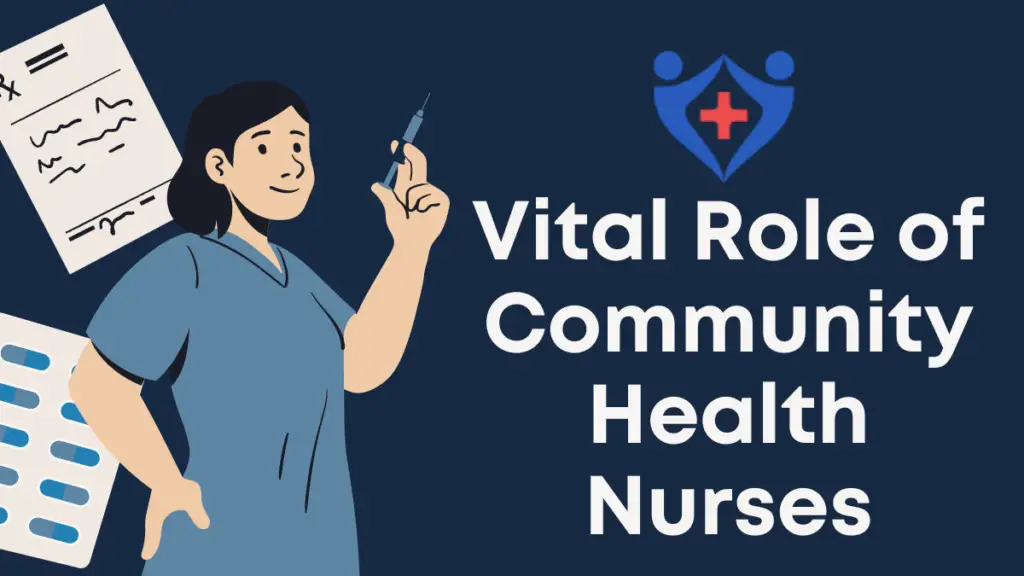In the realm of healthcare, community health nurses stand as frontline champions, providing essential services and support to individuals, families, and communities. Their role is multifaceted, encompassing preventive care, health education, and advocacy. In this comprehensive exploration, we delve into the significance of community health nurses, shedding light on their contributions, challenges, and impact on public health.
The Foundation of Community Health Nursing
Defining Community Health Nursing
Community health nursing is a specialized field within nursing that focuses on promoting and preserving the health of populations within a specific geographic area or community. Unlike other nursing specialties, community health nursing emphasizes a holistic approach, addressing not only physical ailments but also social, environmental, and economic factors that influence health outcomes.
Historical Evolution
The roots of community health nursing trace back to the late 19th century with the pioneering efforts of figures like Lillian Wald and Florence Nightingale. These trailblazers recognized the importance of addressing health disparities at the community level, laying the groundwork for modern-day community health nursing practices.
Core Responsibilities
Community health nurses undertake a diverse array of responsibilities, including:
- Assessment: Conducting thorough assessments of community health needs to identify prevalent health issues and disparities.
- Education: Providing health education and counseling to individuals and groups on topics such as disease prevention, nutrition, and lifestyle modifications.
- Advocacy: Advocating for policies and interventions that promote health equity and address social determinants of health.
- Care Coordination: Collaborating with other healthcare professionals and community organizations to ensure seamless access to healthcare services.
- Disease Prevention: Implementing strategies for disease prevention and health promotion through vaccination programs, screenings, and health campaigns.
Table: Community Health Nursing Interventions
| Intervention | Description |
|---|---|
| Health Education | Providing information and resources to individuals and communities to promote health literacy and empower decision-making. |
| Home Visits | Conducting assessments and delivering care directly to individuals in their homes, particularly for homebound or vulnerable populations. |
| Outreach Programs | Engaging with communities through health fairs, workshops, and community events to promote health awareness and preventive care. |
| Advocacy | Championing policies and initiatives that address social determinants of health and promote health equity at the local, state, and national levels. |
| Care Coordination | Coordinating with healthcare providers, social services, and community organizations to ensure comprehensive and seamless access to care. |
| Disease Surveillance | Monitoring disease trends and outbreaks within communities to facilitate early detection and intervention strategies. |
| Chronic Disease Management | Providing ongoing support, education, and resources to individuals living with chronic conditions to improve self-management and quality of life. |
The Impact of Community Health Nurses
Improving Access to Healthcare
One of the primary roles of community health nurses is to bridge the gap between underserved communities and healthcare resources. By delivering care directly to individuals in their homes or community settings, these nurses enhance access to essential health services, particularly for vulnerable populations such as the elderly, low-income families, and rural communities.
Promoting Health Equity
Health disparities persist across various demographic groups, disproportionately affecting marginalized communities. Community health nurses play a pivotal role in addressing these inequities by advocating for policies and interventions that prioritize underserved populations. Through culturally competent care delivery and community engagement, these nurses strive to reduce barriers to healthcare access and promote health equity for all.
Preventing Disease Outbreaks
In an era marked by infectious disease threats, community health nurses serve as frontline defenders against epidemics and pandemics. Through surveillance, early detection, and proactive interventions, these nurses play a critical role in preventing the spread of communicable diseases within communities. Whether through vaccination drives, contact tracing efforts, or public health education campaigns, community health nurses are instrumental in safeguarding public health.
Supporting Chronic Disease Management
Chronic diseases such as diabetes, hypertension, and heart disease pose significant challenges to population health. Community health nurses are at the forefront of chronic disease management, providing ongoing support and education to individuals living with these conditions. By promoting self-management strategies, facilitating access to healthcare resources, and offering emotional support, these nurses empower patients to take control of their health and improve their quality of life.
Challenges and Opportunities
Resource Constraints
Despite their crucial role, community health nurses often face resource constraints, including limited funding, staffing shortages, and inadequate infrastructure. These challenges can hinder their ability to deliver comprehensive care and address the complex needs of the communities they serve. To overcome these obstacles, concerted efforts are needed to invest in workforce development, strengthen healthcare infrastructure, and advocate for sustainable funding models for community health programs.
Addressing Social Determinants of Health
The social determinants of health, including factors such as socioeconomic status, education, and access to safe housing, profoundly influence health outcomes. Community health nurses recognize the interconnectedness of these factors and strive to address underlying social determinants to improve overall health and well-being. By collaborating with community partners and advocating for policies that address root causes of health disparities, these nurses can make meaningful strides towards achieving health equity.
Harnessing Technological Innovations
In an increasingly digital world, technology presents both opportunities and challenges for community health nursing practice. Telehealth platforms, electronic health records, and mobile health applications offer new avenues for delivering care and engaging with patients remotely. However, disparities in access to technology and digital literacy can exacerbate health inequities, particularly among underserved populations. Community health nurses must navigate these complexities, leveraging technology to enhance care delivery while ensuring equitable access for all.
Conclusion
Community health nurses play an indispensable role in promoting health, preventing disease, and addressing health disparities within communities. Through their commitment to holistic care, advocacy, and community empowerment, these nurses make significant contributions to public health outcomes. As we continue to navigate the evolving landscape of healthcare, investing in the support and recognition of community health nursing is essential for building healthier, more resilient communities.

